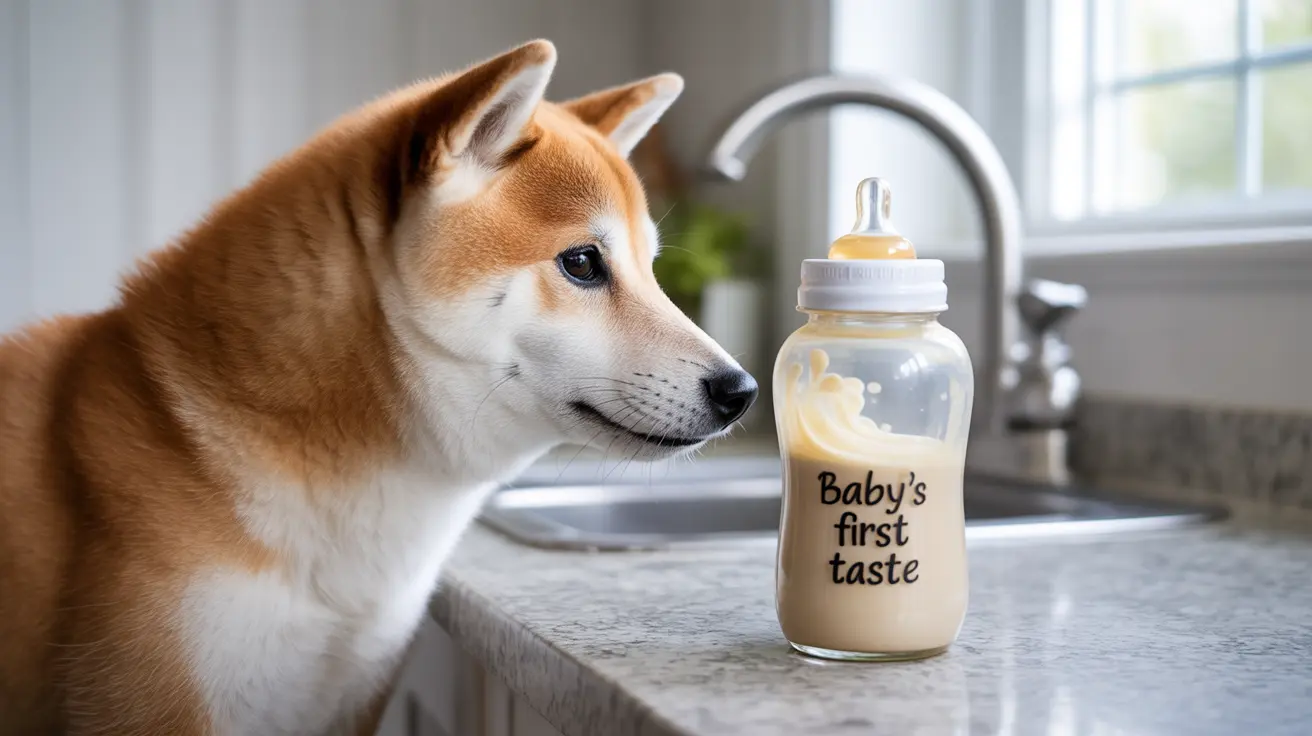Many pet parents wonder about what their dogs can safely consume, especially when it comes to human foods and drinks. One question that occasionally arises is whether dogs can have human breast milk. While human breast milk is nature's perfect food for human infants, it's important to understand why it's not appropriate for our canine companions.
In this comprehensive guide, we'll explore the science behind why human breast milk isn't suitable for dogs, potential risks, and what alternatives are available for puppies needing supplemental nutrition.
Why Human Breast Milk Isn't Safe for Dogs
Human breast milk is specifically designed for human babies, containing nutrients in proportions that aren't appropriate for dogs. Dogs have different digestive systems and nutritional requirements that make human breast milk potentially harmful rather than beneficial.
The primary issue lies in the high lactose content of human breast milk. Most adult dogs lack sufficient lactase enzyme to properly digest lactose, making them effectively lactose intolerant. This can lead to significant digestive distress.
Understanding the Digestive Impact
When dogs consume human breast milk, they may experience several uncomfortable symptoms:
- Severe diarrhea
- Vomiting
- Stomach cramps
- Gas and bloating
- Nausea
- Potential dehydration
Nutritional Differences Between Human and Dog Milk
The composition of human breast milk differs significantly from dog milk in several key ways:
- Protein content: Dog milk contains significantly more protein
- Fat levels: Dog milk has different types and amounts of essential fats
- Carbohydrate content: Human milk has much higher lactose levels
- Immune factors: Species-specific antibodies that don't benefit dogs
Safe Alternatives for Puppies
If you're caring for puppies who need supplemental feeding, there are appropriate alternatives to consider:
- Commercial puppy milk replacer formulas
- Veterinary-approved canine milk substitutes
- Specially formulated puppy nutrition supplements
What to Do If Your Dog Drinks Human Breast Milk
If your dog accidentally consumes human breast milk, don't panic. Monitor them for signs of digestive upset and contact your veterinarian if you notice concerning symptoms. In most cases, a small amount won't cause serious harm, but it's important to prevent future access.
Frequently Asked Questions
Can dogs safely drink human breast milk without health risks?
No, dogs cannot safely drink human breast milk. It can cause digestive issues due to lactose intolerance and doesn't provide appropriate nutrition for canines.
Why is human breast milk not suitable for puppies or adult dogs?
Human breast milk has a different nutritional composition than dog milk, with higher lactose content and inappropriate levels of proteins and fats for canine development.
What symptoms indicate lactose intolerance in dogs after consuming human milk?
Common symptoms include diarrhea, vomiting, stomach upset, bloating, and gas. Severe cases may lead to dehydration.
What are the differences between human breast milk and canine milk in nutritional content?
Dog milk contains higher levels of protein and specific fats, while human milk has higher lactose content and different immune factors designed specifically for human infants.
What should I do if my dog accidentally drinks human breast milk?
Monitor your dog for signs of digestive upset and contact your veterinarian if concerning symptoms develop. Prevent future access to human breast milk.
Conclusion
While human breast milk is a perfect food for human babies, it's not appropriate or safe for dogs. If you need to supplement a puppy's diet, always use veterinary-approved commercial milk replacers designed specifically for dogs. For adult dogs, stick to their regular diet and fresh water for optimal health and nutrition.






